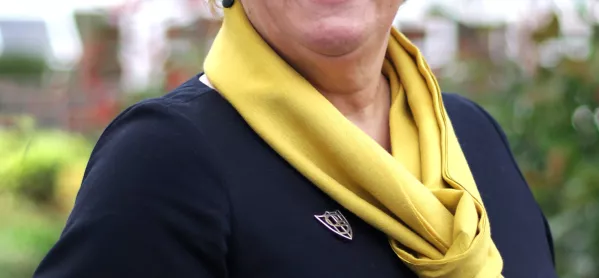Letting pupils replace a GCSE with an “extended project” qualification would reduce the pressure of exams and could benefit pupils’ mental health, according to a leading independent school headteacher.
Jane Prescott, incoming president of the Girls’ School Association, said she wants more pupils to study a “junior” version of the extended project qualification (EPQ) for GCSE.
She hopes to introduce this at her own school, Portsmouth High School, a single-sex private school in Hampshire.
Ms Prescott said this would allow pupils to research a topic that “genuinely engages and interests them” following the demise of coursework, and reduce the pressure of exams.
Many private school pupils take the EPQ alongside A levels, which allows them to research a topic of their choice independently, gaining the equivalent of half an A level.
Related: A levels: More private schools use alternative courses
EPQ: Four steps to EPQ success
GCSEs: Private schools shift away from IGCSEs
Ms Prescott says she wants her GCSE pupils to study a less common version of the EPQ at GCSE - the level 2 Higher Project qualification, currently offered by AQA and Pearson Edexcel, which is equivalent to half a GCSE grade.
Nearly 39,900 pupils took the level 3 EPQ in 2019, but fewer than 4,000 took the level 2 EPQ.
Ms Prescott said: “What we want to do is encourage young people to research topics that genuinely interest them rather than it being exam driven. Because the other aspect of that is mental health, which is reportedly lower in young people than it has been previously.”
“What I’d like to see more students being able to take up is the GCSE EPQ, to encourage young people to take on their own research project, on a topic that particularly engages and interests them, which is going to be useful for them whether they go on to university or not.
“The EPQ at A level, it is very much designed for helping undergraduate dissertations, but doing something at GCSE level is going to help those young people who go on to different forms of training, not necessarily onto A levels.
“With a research project it has something that is beyond the curriculum - currently that’s not offered. With the demise of coursework, this would give young people the opportunity to look at something that genuinely engages and interests them.”
She said she was looking to introduce this at her school, with a view to pupils studying a “junior EPQ” instead of one of their GCSE courses, so that pupils faced less pressure from end-of-course exams.
Ms Prescott also praised the proposals of one leading exam board to introduce a GCSE in natural history, saying that too often, an understanding of the natural world was seen as an “extracurricular” concern, rather than being prioritised as an important part of academic learning.





